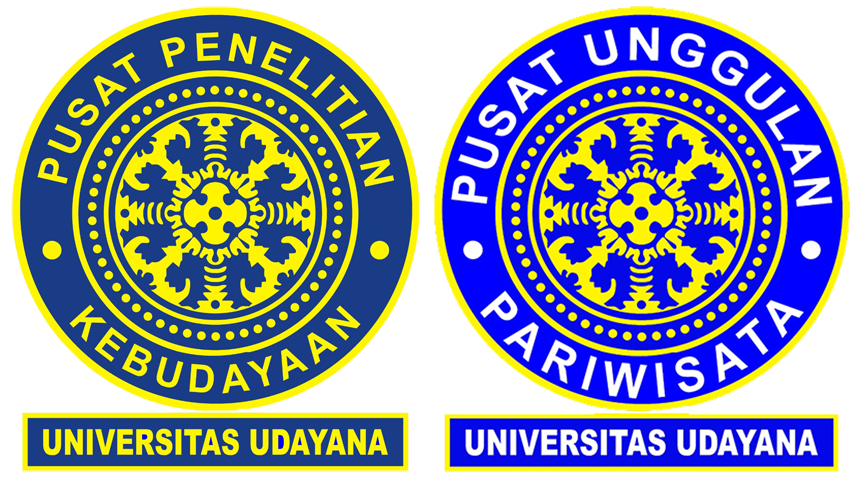Biografi Ida Bagus Raka Pudjana sebagai Refleksi Sejarah Drama Gong di Bali 1960-an –1990-an
Abstract
The history of Balinese drama gong art is rarely written, and so is the biography of its artists. The purpose of this article is twofold: to describe the biography of a Balinese drama gong artist, Ida Bagus Raka Pudjana, and to describe the life of Balinese drama gong from the 1960s to the 1990s. The focus is on tracing the history of drama gong through the figure of Raka Pudjana, an artist with the stage name Komang Apel (Mr Chubby) who was very famous in his time. Research data were collected through interviews, archival studies, and document reviews related to the existence of drama gong and the figure of Ida Bagus Raka Pudjana. The collected data was analyzed using Bourdieu's generative structuralism theory. This study concludes that Raka Pudjana's popularity as a drama artist was mostly obtained from his long-standing practice of playing drama from the community level to various cities throughout Bali. The cultural capital obtained from playing drama gong also contributed to the flourishing of drama gong that he was belong to. This study is expected to provide a model for writing biographies or histories of Balinese performing arts that have many maestros.
Downloads
References
Carmo de Silva, G. (2005). Strukturalisme dan Analisis Semiotik. dalam Mudji Sutrisno & Hendar Putranto, ed. Teori-teori Kebudayaan. Yogyakarta: Kanisius.
Costa, C. dan Mark, M. (2015). Bourdieu, Habitus and Social Research. London: Palgrave Macmillan.
Haryatmoko. (2016). Membongkar Rezim Kepastian: Pemikiran Kritis Post-Strukturalis. Yogyakarta: Kanisius.
Haryatmoko. (2003). Landasan Teoretis Gerakan Sosial Menurut Pierre Bourdieu: Menyingkap Kepalsuan Budaya Penguasa. Basis No. 11-12 tahun ke-52, November-Desember.
Kuntowijoyo (2003). Metodologi Sejarah, edisi kedua. Yogyakarta: PT Tiara Wacana.
Mander, M. S. (1987). Bourdieu, the Sociology of Culture and Cultural Studies: A Critique. European Journal of Communication. 2(4), 427–453. London: Sage.
Manik, N. N. G. A., et al. (2022) “Pengaruh Globalisasi Terhadap Redupnya Eksistensi Drama Gong Di Kalangan Generasi Z Pada Era Society 5.0.” Proseding Pekan Ilmiah Nasional Pelajar (Pilar), Denpasar 24 Januari 2022.
Neuman, W. L. (1996). Social Research Methods: Qualitative & Quantitative Approach. United States of America: TKM Productions.
Putra, I. N. D. (2008). Modern performing arts as a reflection of changing Balinese identity. Indonesia and the Malay World, 36 (104), 87-114.
Putra, I. N. D. (2013). Perkembangan teater di Bali melalui sosok dramawan Abu Bakar. Jurnal Kajian Bali, 3 (1), 159-190.
Putra, I. N. D., Syamsul, A.P., dan Widiastuti. (2017). Denpasar heritage track: Revitalisasi paket wisata ‘Denpasar city tour.’ Jurnal Kajian Bali (Journals of Bali Stidies). Vol 7 No. 2 2017 39-57.
Semadi, A. A. G. (2019). Drama Gong Dalam Panggung Pertunjukan Kesenian Bali di Era Global. Jurnal Kajian Pendidikan Widya Accarya FKIP Universitas Dwijendra. Oktober 2019. DOI: https://doi.org/10.46650/wa.10.2.768.%25p
Sudiani, N. K. (2015). “Inilah Pria Penghidup Seni Drama Gong di Bali.” https://bali.tribunnews.com/2015/05/03/inilah-pria-penghidup-seni-drama-gong-di-bali?page=3.
Sugita, I. W. (2020) “Drama Gong sebagai Media Pendidikan dan Kritik Sosial.” Jurnal Kajian Bali (Journal of Bali Studies). 10 (2), Oktober 2020, 557-578.
Sugita, I. W. (2021). Strategi Pewarisan Seni Pertunjukan Drama Gong Kepada Generasi Penerus.” Kalangwan.11 (2) September 2021, 154-163.
Takwin, B. (2009). Proyek Intelektual Pierre Bourdieu: Melacak Asal Usul Masyarakat, Melampai Oposisi Biner dalam Ilmu Sosial. (Habitus X Modal) + Ranah) Pengantar Paling Komprehensif kepada Pemikiran Pierre Bourdieu. (Terj. Pipit Maizer). Yogyakarta : Jalasutra.
Thomson, P. (2012). Suara Dari Masa Silam: Teori dan Metode Sejarah Lisan. (Terj. Windu W Yusuf). Yogyakarta: Ombak.
Vansina, Y. (2014). Tradisi Lisan Sebagai Sejarah. (terj. Astrid Reza, dkk.) Yogyakarta: Ombak.
Wijaya, I. N. (1997). “Television as an Alternative Medium of Empowerment Balinese Culture Between an Hope and Reality.” Paper in The Workshop on Television in Southeast Asia :The Case of Bali, to be Held 28-29 July 1997 at The University of Wollongong.
Yuliadi, K., Bakdi, S. (2002) “Pertunjukan drama Gong dalam kehidupan sosial masyarakat Bali.” Tesis S2 Pengkajian Seni Pertunjukan dan Seni Rupa. http://etd.repository.ugm.ac.id/penelitian/detail/18853.

This work is licensed under a Creative Commons Attribution 4.0 International License.



















